Leading Iranian Surgeon Speaks Out Against Chopping Off Fingers
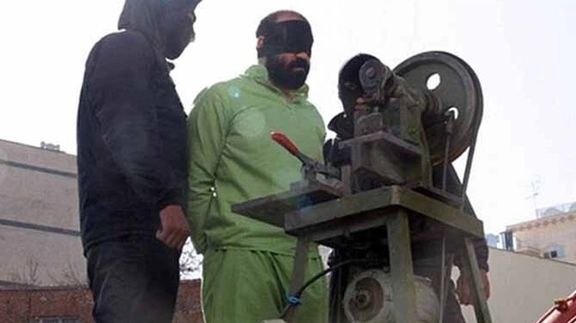
Iraj Fazel, head of the Iranian association of surgeons, has called on the judiciary not to sanction the amputation of fingers to punish thieves.

Iraj Fazel, head of the Iranian association of surgeons, has called on the judiciary not to sanction the amputation of fingers to punish thieves.
In a letter to the chief justice Gholam-Hossein Mohseni-Ejei released to the media Sunday, Fazel called the practice "worrying and horrifying" and said it would create “a wave of hatred and disgust in the world.”
Earlier in June, four fingers of a prisoner were cut off in Tehran’s Evin prison with a guillotine reportedly installed at the infirmary a month earlier to carry out such sentences. According to some readings of Islamic law, just punishment for theft can be amputation of fingers or hands.
Eight men convicted of theft are at imminent risk of having their fingers cut off, according to the Abdorrahman Boroumand Center for Human Rights in Iran (ABC) and Amnesty International.
Three of them, who have waited five years for their sentence to be implemented, have been transferred from Orumiyeh prison in the north-western province of West Azarbaijan to Tehran for the amputation to take place.
"The international community can and should react urgently to stop the implementation of these amputations," Roya Boroumand, ABC executive director, said earlier in June. Amnesty condemned the move to “deliberately mutilate and traumatize prisoners through unspeakably cruel judicial corporal punishments.”
An informed source from the judiciary reacted to the letter, denying reports about the imminent amputations.
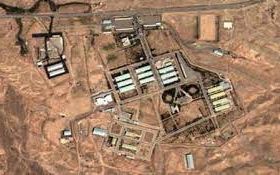
Head of Iran’s Revolutionary Guard University has confirmed that the explosion at Iran’s Parchin military complex that killed a Defense Ministry engineer was an act of sabotage.
Imam Hossein University’s Chancellor Mohammad-Reza Hassani Ahangar, who is an IRGC commander, said in a speech published on Monday that the “industrial sabotage” targeted one of the production lines of the base.
"We have witnessed industrial sabotage at the level of the Armed Forces laboratories, and efforts have been made to destroy our advanced laboratory equipment," he said, noting that the officer who was killed not the target. "We must prevent threats with artificial intelligence methods," he added.
Following the blast late in May, the Defense Ministry had said that “in an accident that took place in one of the research units of the Defense Ministry in the Parchin area, engineer Ehsan Ghadbeigi was martyred and one of his colleagues injured.”
Iran’s missile and space programs have suffered a series of mysterious explosions in recent years. In 2020, a giant explosion occurred in the area of Parchin at a gas storage facility, rattling the capital and sending a massive fireball into the sky near Tehran.
Iran has accused Israel of carrying out several attacks on facilities linked to its nuclear program and of killing its nuclear scientists since mid-2020.
A series of killings and deaths among IRGC ranks in Iran in recent weeks has led to suspicion that they might have been targets of a secret series of operations, purportedly by Mossad.

Israel is preparing offensive options against Iran, Defense Minister Benny Gantz said on Sunday amid rising tensions between the two countries since May.
Gantz, who warned Iran the previous day on what Israeli officials say are threats of Tehran-organized attacks on their citizens in Turkey and in the Persian Gulf Arab countries, said the offensive plans are being prepared in case they are needed.
“We aren’t able to personally protect every Israeli anywhere in the world,” Gantz said, perhaps emphasizing the deterrent aspect of his threat directed at Iran.
“We are in contact with the relevant Turkish authorities, and we are of course mainly preparing offensive capabilities, if and when they are needed,” he said. “I suggest that the Iranians not test these capabilities.”
Earlier on Sunday, Prime Minister Naftali Bennet also warned Iran against any threats to Israeli citizens in regional countries.
“We are currently witnessing Iranian attempts to attack Israelis in various overseas locations,” Bennett said in remarks at the opening of the weekly cabinet meeting in Jerusalem.
“Our new rule: Whoever sends, pays,” Bennett warned according to an English-language statement of his remarks provided by his office quoted by Times of Israel. “We will continue to strike those who send the terrorists, and those who send those who send them.”
Parallel with the prime minister’s and defense minister’s warnings on Sunday, Foreign Minister Yair Lapid’s office announced that he will visit Turkey this week.
Israeli sources have been warning about possible attacks on tourists visiting Turkey for three weeks but calls for travelers to be extremely cautious increased last week, with fresh concerns over possible attacks on Israelis in the United Arab Emirates.
Tehran has vowed to take revenge after a top Quds Force commander was gunned down in broad daylight in in Iran on May 22. Other deaths of people connected with the Islamic Revolution Guard Corps (IRGC) followed, although Tehran tried to portray their deaths for reasons other than any foreign plot. But the perception that Israeli secret agencies are operating freely in Iran and have been inflicting damage since mid-2020 is widespread among the people.
This could be potentially costly for the IRGC and the regime in political terms as it loses the aura of omnipotence it has been trying to portray within the country.
Alleged Israeli operations in Iran started when Tehran ratcheted up its nuclear program in 2019, once the US withdrew from the 2015 nuclear agreement and imposed sanctions on Iran in 2018.
Specially since the Biden administration started talks with Iran last year to reach a new nuclear deal, Israel has repeatedly said that it will not tolerate a nuclear Iran and has clearly indicated military preparation. The issue of threats to Israeli tourists in Turkey is the manifestation of the long-existing tensions as Israel has been preparing for a possible confrontation with Iran.
Iran International reported on June 18 that some political analysts in Iran also believe that the clerical regime is moving toward a confrontation in the region, with not agreeing to a nuclear deal after more than a year of indirect talks with the United States.
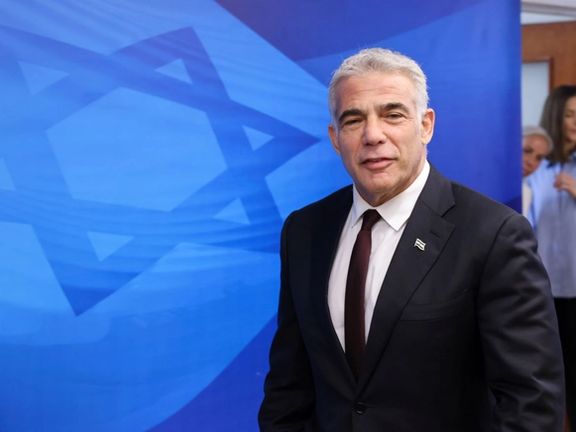
Israeli Foreign Minister Yair Lapid will visit Turkey this week amid worries over growing threat of attacks against Israeli citizens by Iranian agents.
Lapid office announced the snap visit on Sunday after months of warming ties between Israel and Turkey, adding that he would meet with Turkish counterpart Mevlut Cavusoglu, who last month visited Israel.
Israeli officials and media began issuing the warnings in the end of May, citing suspected assassination or abduction plots by Iran, which has vowed to avenge the May 22 assassination of a Revolutionary Guards colonel in Tehran that it blamed on Israeli agents.
Earlier in the day, Israeli President Isaac Herzog thanked Turkish President Recep Tayyip Erdoğan for “efforts to thwart (Iran’s) terrorist attacks against Israelis,” adding that “the threat has not yet passed and that the counterterror efforts must continue.”
On Saturday, Defense Minister Benny Gantz issued a statement reiterating that there is a serious risk of attacks on Israelis in Turkey by Iranian networks.
Despite repeated statements from Israeli officials warning of impending Iranian attacks, Tehran has generally remained silent, but on Saturday, the Iranian and Turkish foreign ministers had their first phone call since the warnings.
Iranian state media said Cavusoglu has invited his Iranian counterpart Hossein Amir-Abdollahian to visit Turkey, without providing any time for the visit.
Ankara has reportedly warned the Islamic Republic against attacking Israelis in Turkey, saying it is not prepared to allow Iran to use its territory to carry out acts of terrorism against other nations.
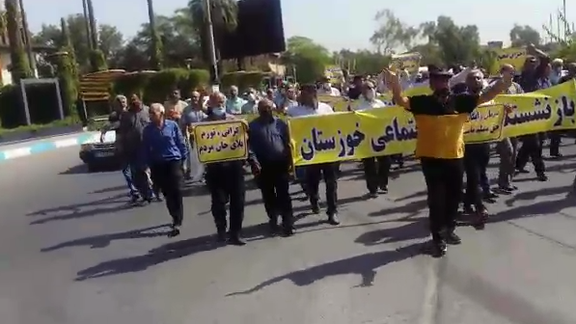
As strikes and protests continued in Iran’s retail and industrial sectorss on Sunday, a group of workers of Tehran’s transportation fleet held a protest rally for their demands.
The drivers and truckers gathered in front of the Roads and Transportation Organization in Tehran to protest the economic hardship they are going through.
Videos on social media showed them chanting slogans against the empty promises by the government and the crackdown by the security forces.
In May, the Union of Truckers and Drivers' Organization announced plans to hold a nationwide strike, saying holding protests for the realization of their demands are their inalienable right. The date of the strike is to be announced soon.
Sunday’s protest took place against the backdrop of shop owners’ strikes and pensioners' protests in many cities across the country, such as Kermanshah, Sari, Rasht, and several cities in the oil-rich Khuzestan province, including Ahvaz, Shush, and Shushtar.
The protests and strikes by pensioners and retailers on Saturday coincided with President Ebrahim Raisi’s first election anniversary amid economic and political uncertainty.
Retirees took to the streets in many cities and towns on Sunday again to protest the meager rise in their pensions, which fails to compensate for the huge drop in their purchasing power given an inflation rate of over 40 percent. The current round of strikes and demonstrations began on Sunday, June 12, after Iran’s currency fell to a historic low of 333,000 rials to the US dollar.
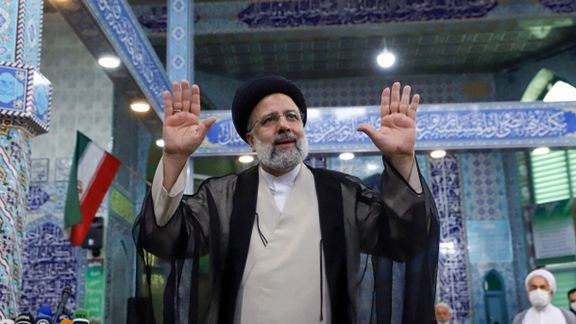
Iranian newspapers Sunday marked the end of the first year since President Ebrahim Raisi's election on June 18, 2021 with harsh criticism of his economic team.
Most columnists and commentators welcomed the recent resignation of Raisi's Labor Minister Hojjat Abdolmaleki but said that many more ministers will have to leave the cabinet.
Nonetheless, some commentators including Reformist lawmaker Naser Ghavami said replacing current ministers with new ones cannot solve Iran's economic problems. He added that even the best economists cannot tackle the ongoing economic crisis because the underlying reason for problems is the political system itself.
Ghavami charged that the government has made Iran dependant on Russia and China, adding that the two countries simply follow their own interests.
Former lawmaker Mohammad Reza Khabbaz asked: "Do not these minister feel any shame even before their own conscience for accepting to be in charge of key ministries? On what basis has Raisi appointed them as ministers? And what do those who suggested these individuals think about the situation now?"
Khabbaz said that many more ministers from Raisi's cabinet need to go. Meanwhile, he called those ministers who promised to create one million jobs or build one million houses every year, "liars." He further asked: "Isn't what they have been doing a waste of the country's resources and the nation's dignity?"

Columnist Mohammad Shadi wrote in a commentary in Jahan Sanat newspaper that his publication has been in the market for nearly two decades and it was evident for its journalists that Raisi's ministers were not fit for their jobs. Shadi opined that at least two more economic ministers should leave the government.
Shadi wrote that Iran needs to prove that its economic policies are consistent with international norms if it wishes to attract foreign investment.
The new reformist daily Arman Emrooz, not to be mistaken with the very similar looking Arman Melli, wrote that "during the past ten months since Raisi took office, he has issued a major directive every 9 days. However, 3 out of every 4 orders have been ignored by those who had to carry them out."
The daily added: "Out of 37 official orders issued by Raisi, 27 of them have not been carried out at all, 6 have been carried out and another 4 have been abandoned halfway through their implementation."
Meanwhile, Tahmoures Hoseini wrote in an article in Toseh Irani newspaper: "Because of the government's performance, the divide between the people and officials has increasingly widened in recent years. The current government blames its predecessors and the members of the previous government blame the way elections are held in Iran.
The daily wrote that the rise in the number of protests is another indication of the government's failure while it keeps blaming the United States. The daily quoted Former lawmaker Gholamreza Jafarzadeh Imanabadi: "I should say clearly that I doubt the honesty of Raisi's economic team. Raisi needs to reshuffle his government and try to meet the promises he made to the people for their votes."
Economist Albert Boghossian wrote in Setareh Sobh that most of the complaints about the government have something to do with Raisi's broken promises. Boghossian also added that neither Raisi nor his economic team can make any difference while the system does not allow for reforms.
Despite all this, the administration-owned daily, Iran, says all is well, and quotes Raisi as saying, "There is no problem in Iran that cannot be solved."